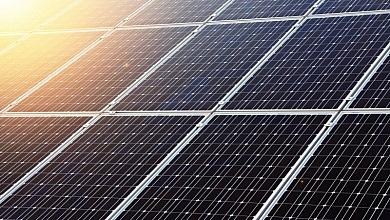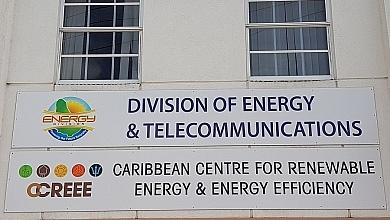CCREEE Launches its new CARICOM Energy Knowledge Hub

The Caribbean Centre for Renewable Energy and Energy Efficiency (CCREEE) on Thursday launched the new CARICOM Energy Knowledge Hub (CEKH).
The CEKH is an information and knowledge management framework developed to ensure that appropriate, reliable and high-quality information is available and accessible within the region. The Hub addresses key data and information gaps while supporting the efforts of regional decision makers.
Further, it permits access to energy statistics and information required for energy planning, public policy development support, decision support and awareness building and, targets a general audience, governments, project developers and energy sector personnel through a system which segments available data and information according to a registrant’s access level.
The Hub builds on an earlier version hosted previously on the CARICOM Energy website. Speaking during the launch, Dr Devon Gardner Head of the CARICOM Secretariat’s energy Unit highlighted key elements of the CEKH’s history and evolution. He said, “This has been a journey. Countries needed to have high levels of intelligence to guide the policy and planning required for them to transition to sustainable energy. It has been a long road and we are very proud of where we have reached so far.”
Likewise, Dr Gary Jackson, CCREEE’s Executive Director expressed his joy at the CEKH being launched. “For the CCREEE, the CEKH is key to one of our strategic priorities, CREATE: a market intelligence repository knowledge hub aimed at enhancing capacity within the regional energy sector. This is pivotal to our strategic programming towards the implementation of our suite of flagship programmes – the IRRP, the PPF and the CEKH – as they are all connected”, he shared. The CCREEE’s implementaiton of its flagship programmes is triangular, intersecting to meet regional gaps and needs, improving the lives of the people.
The CCREEE’s Integrated Resource and Resilience Planning (IRRP) Programme supports countries in the development of comprehensive, resiliency-focused energy plans which then provide avenues for the development of a pipeline of energy projects, which can be supported through the CCREEE Project Preparation Facility (PPF). During project implementation, lessons learned, case studies, data and other resources will be stored within the CARICOM Energy Knowledge Hub (CEKH) for access by and the capacity development of the region’s energy professionals.
The CEKH is generously funded by the European Union (EU) and the German Federal Ministry of Economic Cooperation and Development (BMZ), with technical support from the German Corporation for International Cooperation (GIZ), all through the Technical Assistance Programme for Sustainable Energy in the Caribbean (TAPSEC). The initiative has also benefited from financial support from the Spanish Agency for International Development Cooperation (AECID), the United Nations Industrial Development Organisation (UNIDO) and the Austrian Development Agency (ADA).
The new and improved CEKH will primarily be hosted on the CCREEE’s website and mirrored to the CARICOM Energy website. Interested persons can register to access CEKH resources by visiting ccreee.org/cekh.
The Caribbean Centre for Renewable Energy and Energy Efficiency (CCREEE) is a specialized institution of the Caribbean Community (CARICOM). Established within the framework of the Global Network of Regional Sustainable Energy Centres (GN-SEC), the CCREEE is the implementation hub for sustainable energy activities and projects within the CARICOM region.
This article is copyright © 2021 DOM767







